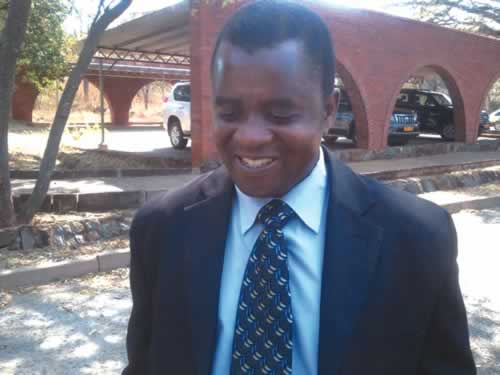
The Sunday News

Judith Phiri, Business Reporter
THE Bulawayo City Council (BCC) has been challenged to conduct extensive consultations with various stakeholders and always listen to the concerns of the people before taking up Public-Private
Partnerships (PPPs) or other investment partnerships to avoid public uproar.
This comes at a time there has been raging concerns over the US$1 per hour parking fees being charged by the Trendy Three Investments Private Limited (TTI), a vehicle parking partner of the local authority.
Heeding to the growing calls of the public, BCC and TTI reviewed the smart parking pricing model with the new arrangement that motorists would be able to transfer their paid parking time to different parking bays during the time they would have paid for.

However, members of the public continue to call for the review of the US$1 per hour parking fees noting that it was too high for motorists and was affecting businesses which were losing customers.
Speaking during a policy dialogue series in Bulawayo on Friday, Public Policy and Research Institute of Zimbabwe founder and director Dr Gorden Moyo said it was crucial for BCC and TTI to listen to the voice of the ordinary people who are saying the US$1 per hour was too high.
He challenged the local authority to always make consultations as it was not operating in isolation of the various stakeholders who bemoaned not being consulted about the new parking system.
He also urged the local authority to reinvest the money from the PPP in developing basic infrastructure.
“As BCC re-invest the 30 percent that you are getting from TTI on the management and maintenance of the roads.That is important to avoid what is currently being witnessed where road markings lines are being drawn on potholes. Plough back the funds to the roads then the communities will see the value of paying.”

PPRIZ director Dr Gorden Moyo
Sharing the same sentiments on the consultation issue, Zimbabwe National Chamber of Commerce (ZNCC) Matabeleland regional manager Mr Mduduzi Ncube said as a body that represents businesses they were not consulted.
He said: “As ZNCC we have tried to engage BCC and TTI since March till up to date and our request to meet them they have not been responded to this day. The concern from business is basically on the pricing model and lack of consultation.”
Mr Ncube said the pricing system of US$1 per hour has resulted in an additional transaction cost affecting business and the price of commodities that stakeholders might be wanting to transact at a particular time.
Presenting a research paper titled “Funding the Financing of Local Authorities with Public Private Partnerships Projects in Zimbabwe (PPPs) – A case study of Parking Management in the City of Bulawayo”, Public Policy and Research Institute of Zimbabwe head Professor Reinford Khumalo said after consulting various stakeholders, key themes were identified from the responses such as matters of consultation and unaffordability of the parking fee by motorists in general among others.
In terms of recommendations, Prof Khumalo said the involvement of PPPs in doing projects requires broad consultation with stakeholders.
He said while consultations could take a lot of time, they resulted in long lasting relationships.
Prof Khumalo said local authorities needed to exploit to the full the facilities they have before they engage public-private partners.
“Some public-private partnerships may not be necessary when available facilities are used to the full.
The improved usage of available facilities could generate maximum revenues that could lower the cost of services to the final consumer.”
BCC parking management system project manager Mr Vusisizwe Sibanda said: “The reason why probably people are crying that parking is expensive is the more efficiency that it has brought into the city. The 30 minutes parking bays introduced in 2009 were going for US$0.76 per bay for 30 minutes which translated to US$1.52 for an hour but because the efficiency was not there of collecting the funds you will discover that a lot of people did not feel that it was US$0.76 because that booklet with 25 pages you were buying was for US$19. Actually, you would find out that the same parking bay in the new system is now costing a US$1 per hour.”



